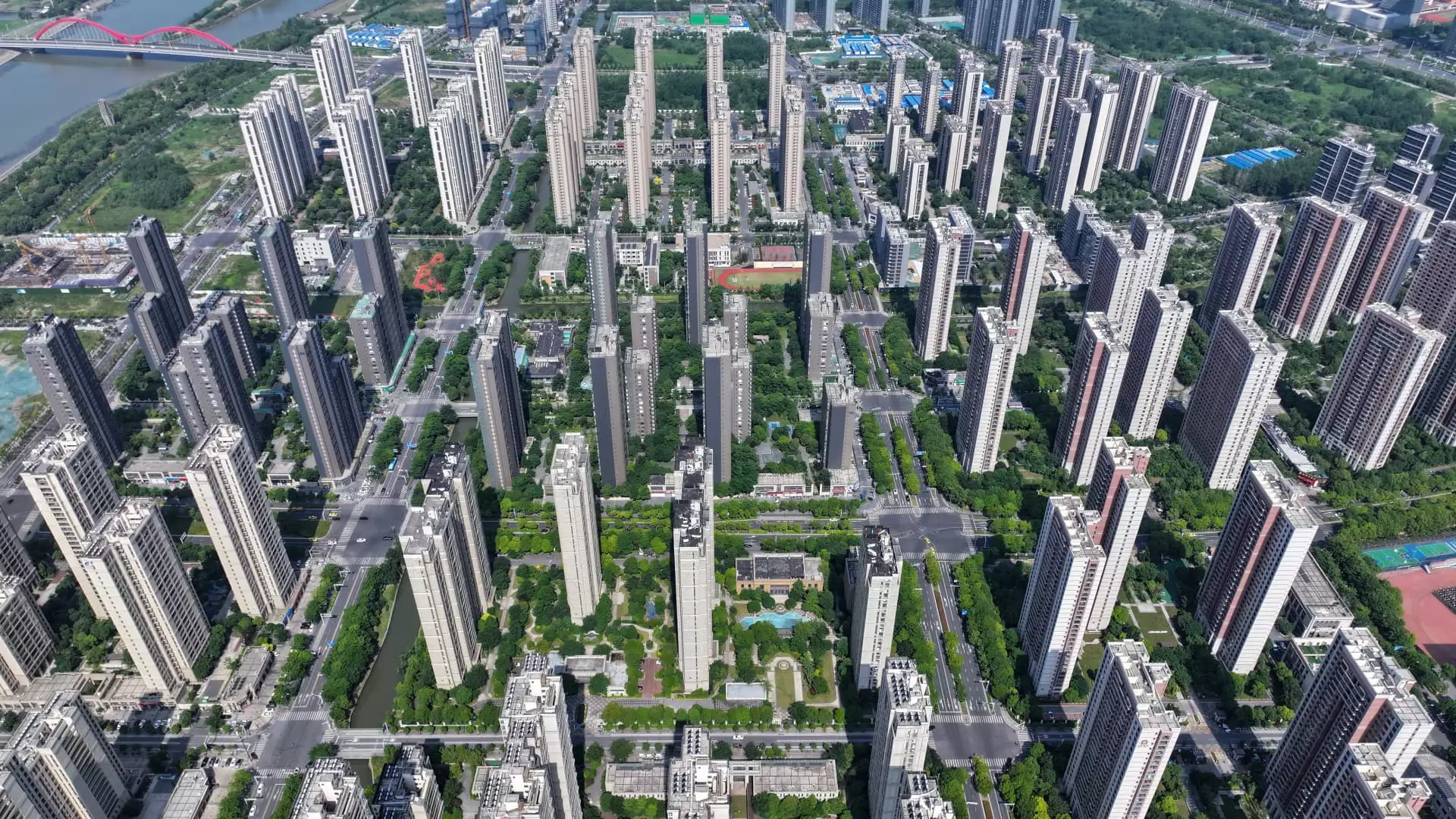In a noteworthy development for the beleaguered real estate sector, shares of Hong Kong-listed Chinese property stocks have recently experienced an impressive surge, reaching levels not seen in over a year. The upward movement was primarily spurred by various stimulus measures aimed at bolstering the sagging economy. Longfor Group Holdings emerged as a prominent leader in this rally, seeing its shares soar by over 25%. Other major players in the sector, such as Shimao Group and Kaisa Group, reported staggering increases of 87% and 40.48%, respectively, both hitting their highest share prices in more than twelve months.
This revitalization is evident in the broader Hang Seng Index as well. Not only did the index gain 6%, but the Hang Seng Mainland Properties Index recorded a remarkable rise of over 14%. These developments suggest a renewed confidence among investors who had previously been wary of the real estate market’s stability.
In response to persistent challenges within the property market, major cities in mainland China have begun to implement easing measures aimed at restoring homebuyer confidence. The Guangzhou city government notably announced a complete removal of restrictions on home purchases, effective immediately. Similarly, Shanghai enacted reductions on the required tax-paying period, effective from the beginning of the week. Shenzhen is also participating in this trend by relaxing purchase restrictions, allowing additional property acquisitions in select areas.
These policy shifts represent a significant effort by local governments to stabilize the property landscape. However, industry analysts, including those from Morgan Stanley, express caution regarding the effectiveness of these measures. While they could help mitigate some immediate concerns, restoring a substantial level of demand will take more than just policy changes.
Despite the positive market sentiment and emerging policy measures, the road to recovery for the real estate sector is fraught with challenges. Morgan Stanley’s economists have projected a continuing decline in overall demand for real estate, which may keep growth figures below expectations. This outlook is particularly concerning given that real estate previously constituted over 25% of China’s GDP. The sector has faced significant setbacks since 2020, following government measures aimed at curbing excessive corporate debt.
In an environment still grappling with the aftershocks of past policies, previous government initiatives aimed at relieving financial distress among households and stabilizing the property market have yielded minimal results. Confidence among buyers remains fragile, and one cannot overlook the long-term ramifications of a sector that has experienced such prolonged instability.
While there has been a notable resurgence in the Hong Kong-listed Chinese property stocks buoyed by recent stimulus efforts and policy relaxations, the challenges facing the sector are formidable. The impact of easing measures may provide short-term stability, yet the lasting effects on consumer trust and market dynamics remain uncertain. As the sector attempts to navigate this complicated landscape, both investors and policymakers will need to adopt a cautious approach, carefully analyzing the efficacy of implemented measures and the overall health of the property market moving forward.

